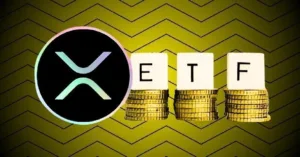An arrangement where a number of miners pool their resources to increase their chances of finding the next block.
What Is a Mining Pool?
On certain blockchains — Bitcoin being one of them — there can be a lot of competition between miners who are determined to find the next block. All of this means that it takes an ever-increasing amount of computing power (and electricity) in order for a miner to get their hands on crypto rewards. In some cases, the infrastructure that’s needed to have a realistic chance of validating a block can be too expensive for an individual.
Mining pools are a way around this. As the name suggests, it involves pooling resources to increase the chances of success. By bringing together their computing power into one collective group, the prospects of miners finding the next block — and being rewarded with crypto — become higher.
If a pool manages to see off the competition and receive a block reward, it is subsequently divided between members. It’s worth bearing in mind that this may not be an even split. In some cases, some members of a pool may receive a higher proportion of the reward if they have contributed greater levels of computing power.
Although all of this sounds nice and straightforward, there are a few downsides to it too. Some websites have been established that claim to offer cloud-based mining pools, but have later been outed to be scams. Also, do remember that you may have to follow a list of specific rules within a pool or you may not be eligible for a block reward.



